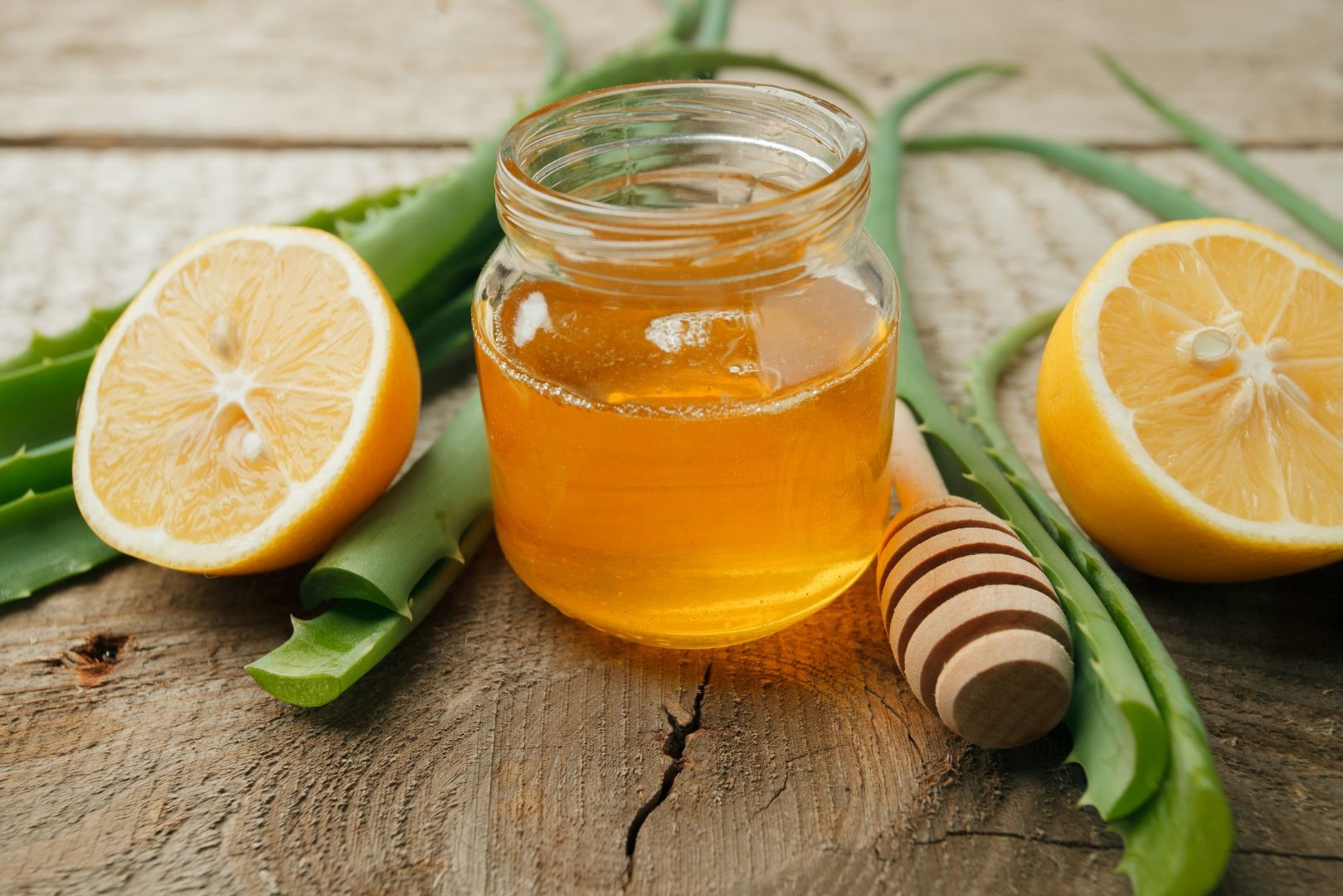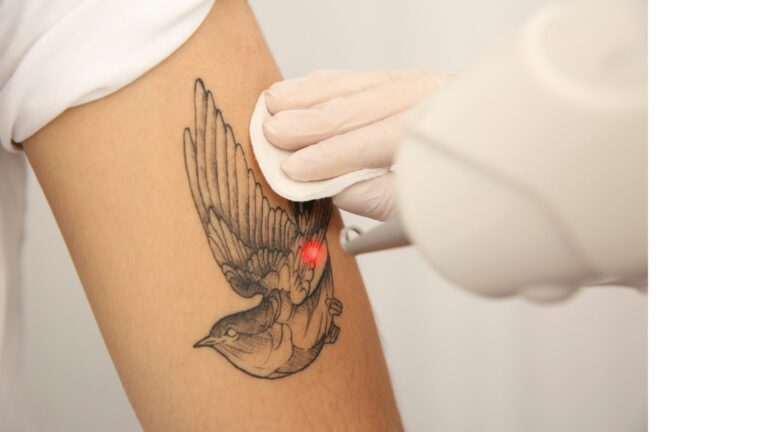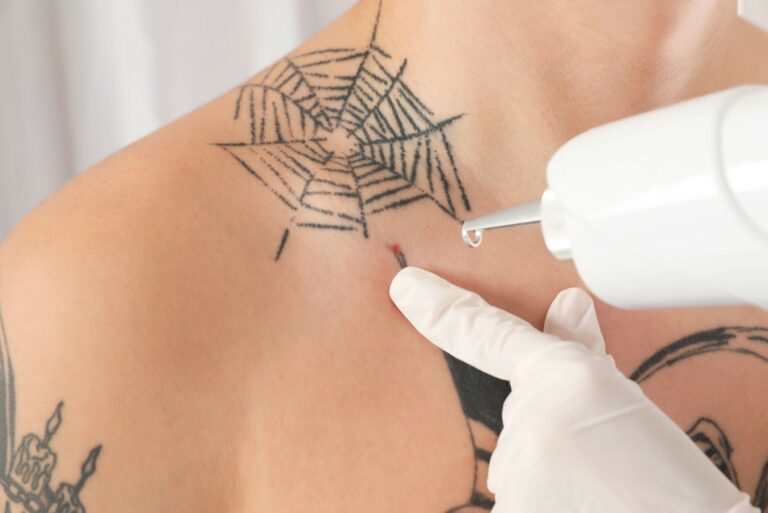Natural Tattoo Removal Remedies
Introduction: The Need for Natural Tattoo Removal Remedies
Tattoos have become increasingly popular in recent years as a form of self-expression and art. With the rise in the popularity of tattoos, there has also been an increase in the number of people seeking tattoo removal. While traditional tattoo removal methods such as laser removal or dermabrasion can be effective, they often come with negative side effects such as scarring and pain.
This has led many people to seek out natural remedies for tattoo removal that are less invasive and have fewer negative side effects. These natural remedies can include ingredients found in the kitchen or at a health food store, making them easily accessible and affordable.
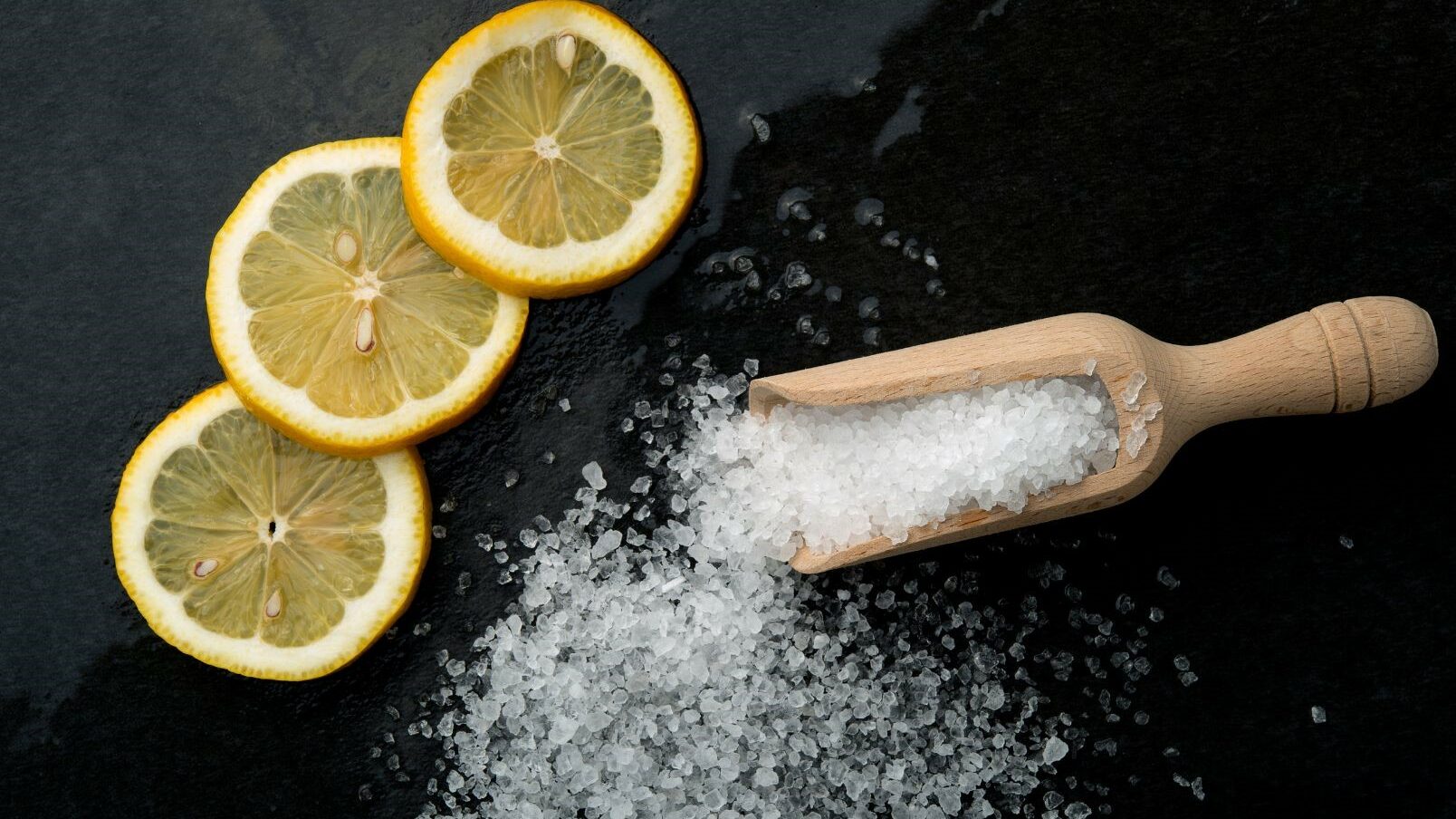
The Increasing Popularity of Tattoos
Tattoos have been around for thousands of years, but it wasn’t until recent decades that they became popularized in mainstream culture. In the past, tattoos were associated with bikers, sailors, and other counterculture groups. However, today tattoos are seen on everyone from celebrities to soccer moms.
One reason for this shift is the growing acceptance of tattoos in society. Tattoos are no longer seen as taboo or rebellious; instead, they are often viewed as a form of self-expression and artistry.
In addition to this cultural shift, technological advancements have made getting a tattoo easier than ever before. Improved equipment and techniques mean that tattoos are now more precise and less painful than they were even a decade ago.
The Negative Effects of Traditional Tattoo Removal Methods
Traditional tattoo removal methods such as laser removal or dermabrasion involve breaking up the ink particles within the skin so that they can be absorbed by the body’s immune system. While these methods can be effective at removing tattoos, they often come with unwanted side effects. For example, laser removal can cause pain, scarring, and changes in skin pigmentation.
Dermabrasion can also be painful and can leave the skin looking raw and irritated. In addition to these physical side effects, traditional tattoo removal methods can also be expensive.
Laser removal sessions can cost hundreds or even thousands of dollars depending on the size and complexity of the tattoo. This high cost often makes it difficult for people to pursue traditional tattoo removal methods.
The Need for Natural Tattoo Removal Remedies
Given the negative side effects and high cost of traditional tattoo removal methods, many people are turning to natural remedies as an alternative. One benefit of natural remedies is that they often involve ingredients that are easily accessible and affordable. For example, lemon juice or salt scrub can be found in most kitchens.
Another benefit is that natural remedies tend to be less invasive than traditional methods. While they may take longer to work, they are generally gentler on the skin and have fewer negative side effects.
Overall, there is a growing need for natural tattoo removal remedies that are safe, effective, and affordable. In the following sections, we will explore some of these natural remedies in more detail.
Understanding Tattoos and Ink Composition
Explaining How Tattoos Work and Why They Are Permanent
Tattoos are permanent forms of body art created by injecting ink into the dermis layer of the skin using specialized needles. While tattoos have been around for centuries, they have become increasingly popular in recent years, with more people opting to get tattoos as a form of self-expression.
It is important to understand how tattoos work to appreciate why traditional methods of tattoo removal can often be painful and ineffective. The ink used in tattoos is injected into the dermis layer of the skin, which is a deeper layer than where temporary tattoos are placed.
The cells in the dermis layer are more stable than those in the epidermis (outermost layer), making it a better location for tattoo placement. Once injected into the skin, the ink particles remain trapped within cells called fibroblasts, which cannot be shed or removed from the skin naturally.
Discussing Different Types Of Ink Used In Tattoos And Their Chemical Composition
There are many different types of tattoo ink available on the market today, each with its own unique chemical composition. Some popular types of tattoo ink include carbon black (the most commonly used), titanium dioxide (used for white pigment), and iron oxide (used for brown/red pigment).
Many people may assume that all tattoo ink is safe and regulated by government agencies; however, this is not entirely true. The FDA does not regulate tattoo ink because it is considered a cosmetic product rather than a medical one.
This means manufacturers are not required to disclose all ingredients used in their products or test them for safety before placing them on the market. As a result, some tattoo inks may contain harmful chemicals like lead or mercury.
It’s also worth noting that different colors of ink may react differently when exposed to certain wavelengths of light during tattoo removal treatments. Black ink tends to be the easiest to remove, while green and blue pigments may require more sessions of laser treatment due to their resistance to certain wavelengths of light.
Understanding how tattoos work and the chemical composition of tattoo ink is essential for those seeking natural remedies for tattoo removal. With this knowledge, one can make informed decisions about which methods may be most effective for fading or removing unwanted tattoos.
Lemon Juice
How Lemon Juice Can Help Fade Tattoos
Lemon juice is a powerful natural ingredient that has been used for centuries in skincare. It contains natural bleaching agents that can help lighten and fade the pigmentation of tattoos.
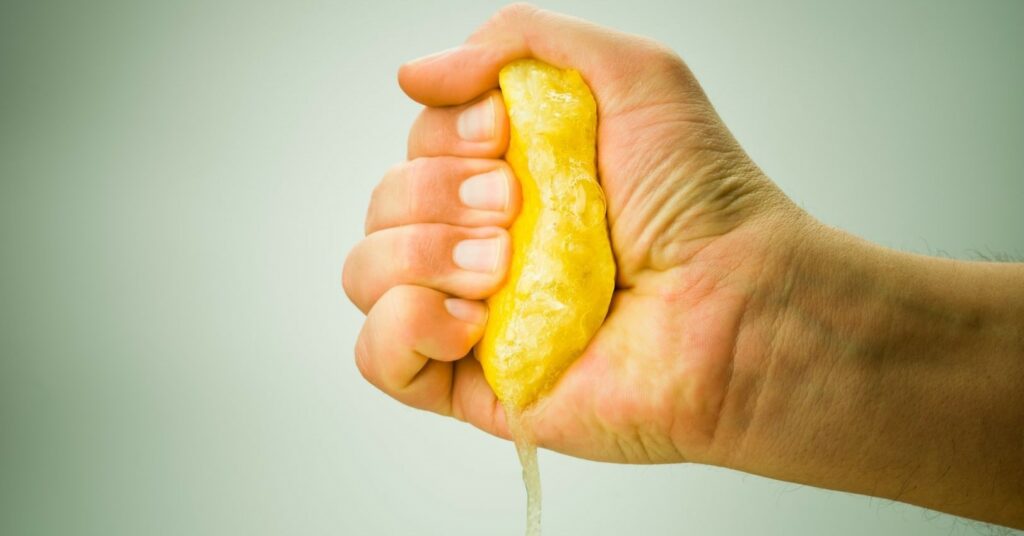
The citric acid in lemon juice works by breaking down the ink particles in the skin, which makes them easier to be removed by the body’s immune system. Moreover, lemon juice helps to exfoliate and remove dead skin cells from the tattooed area, which also contributes to reducing its appearance.
Instructions on How to Use Lemon Juice for Tattoo Removal
Using lemon juice for tattoo removal is pretty straightforward. Here are the steps:
- Squeeze fresh lemons until you get enough juice.
- Soak a cotton ball in the lemon juice.
- Apply the cotton ball onto your tattooed area and rub it gently.
- Leave it on for 10-15 minutes.
- Rinse with warm water.
- Apply moisturizer to keep your skin hydrated. Repeat this process twice a day until you start seeing results.
Aloe Vera
Benefits of Aloe Vera in Skincare
Aloe vera is another popular natural remedy that has numerous benefits in skincare, including tattoo removal. It contains anti-inflammatory and antibacterial properties that can soothe and protect your skin while removing unwanted tattoos naturally without causing any damage or scarring.
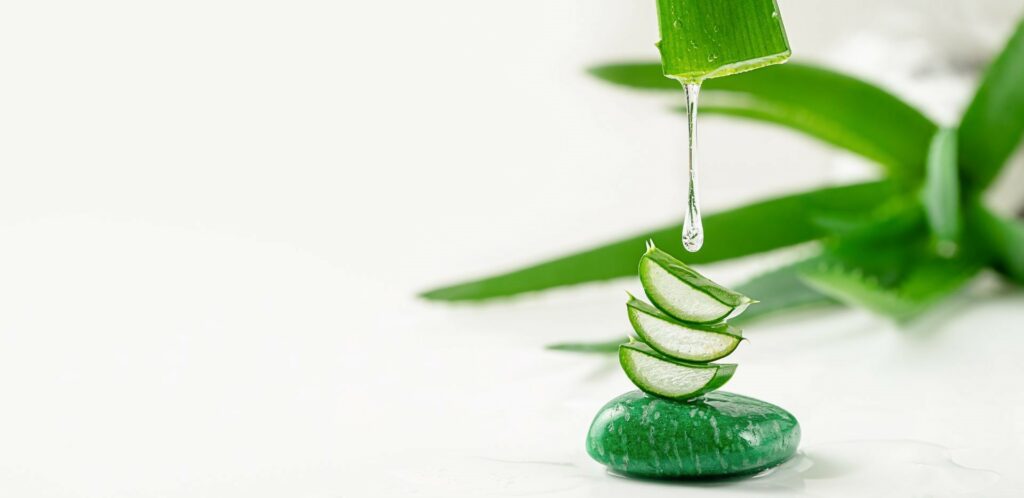
How Aloe Vera Can Be Used to Remove Tattoos
To use aloe vera for tattoo removal: 1. Cut an aloe vera leaf and extract its gel. 2. Apply the gel directly onto your tattooed area
3. Massage gently for 10-15 minutes 4. Leave it on for an additional 10 minutes before rinsing it with warm water
5. Apply moisturizer to keep your skin hydrated Repeat this process twice a day until you start seeing results.
Salt Scrub
Explanation of How Salt Scrub Works to Remove Tattoos
The salt scrub is another natural remedy that works well for tattoo removal. It works by exfoliating the top layer of the skin and removing the dead skin cells, which helps to fade the inked area. The salt crystals also penetrate into the deeper layers of the skin and break down the ink particles, making them easier to be removed by the body’s immune system.
Instructions on How to Make a Salt Scrub at Home
To make a salt scrub at home:
- Mix 2-3 tablespoons of sea salt with enough water or coconut oil to form a paste.
- Apply it onto your tattooed area and massage gently for 5-10 minutes.
- Rinse with warm water.
- Apply moisturizer to keep your skin hydrated. Repeat this process twice a week until you start seeing results.
Honey, Aloe Vera, and Yogurt Mask
Benefits of Honey, Aloe Vera, and Yogurt in Skincare
This natural mask contains honey, aloe vera, and yogurt – all three ingredients that have multiple benefits in skincare. Honey is a natural antiseptic that can help reduce inflammation while also hydrating your skin.
Aloe vera soothes your skin while removing tattoos naturally without causing any damage or scarring. Yogurt contains lactic acid that helps to lighten pigmentation on the skin.
Recipe for Making a Natural Mask That Can Help Fade Tattoos
To make this mask:
- Mix one tablespoon of honey with one tablespoon of aloe vera gel
- Add two tablespoons of plain yogurt and mix well
- Apply the mixture onto your tattooed area
- Leave it on for 30 minutes
- Rinse with warm water and pat dry.
- Apply moisturizer to keep your skin hydrated. Repeat this process twice a week until you start seeing results.
Natural remedies for tattoo removal are effective, affordable, and safe options to consider before turning to traditional methods that can be painful and leave scars on your skin. Whether you choose to use lemon juice, aloe vera, salt scrub or a natural mask like honey, aloe vera, and yogurt mask – it is important to exercise caution while using these remedies by conducting a skin sensitivity test before starting treatment and protecting the treated area from sun exposure during the healing process.
Precautions When Using Natural Remedies for Tattoo Removal
Skin Sensitivity Test
Before using any natural remedy for tattoo removal, it’s important to conduct a skin sensitivity test to ensure you’re not allergic to any of the ingredients used. Allergies can cause itching, rashes, and even severe reactions such as anaphylaxis. To conduct a skin sensitivity test, apply a small amount of the natural remedy on an inconspicuous area of your skin, such as behind your ear or on your inner arm.
Leave it on for 24 hours and observe any reactions. If you experience redness, itching, or swelling, choose another method or consult with a dermatologist.
Sun Exposure Precautions
After applying natural remedies to remove tattoos, it’s important to protect the treated area from sun exposure. Sunlight can cause hyperpigmentation and darken the tattooed area further.
In addition, some natural remedies may make your skin more sensitive to UV rays. Thus it’s crucial that you keep the affected area covered with clothing or use a broad-spectrum sunscreen with at least SPF 30 every time you go outside during daylight hours.
The Dos and Don’ts of Sun Protection
To prevent further damage when under sunlight:
- Wear clothing that covers up tattoos
- Apply sunscreen of at least SPF 30
- Reapply sunscreen every two hours
- Seek shade wherever possible
To avoid irritating your skin after using natural remedies:
- Wait until your skin has fully healed before exposing it to sunlight
- Avoid rubbing or scratching the treated area as this could cause further irritation
- Always use fresh ingredients when creating homemade remedies
- Discontinue use if you experience any adverse reactions
To Summarize
Natural remedies for tattoo removal can be a safe and affordable option, but there are certain precautions to take when using them. Conducting a skin sensitivity test and protecting the treated area from sun exposure are crucial for effective and safe treatment.
By following these precautions, you can reduce the risk of complications or further damage to your skin. To get the best results, always use fresh ingredients, follow instructions carefully, and be patient as natural remedies may take longer to work than traditional methods.
Natural Tattoo Removal Remedies efficiency
The general consensus regarding the efficiency of natural remedies in tattoo removal is that they are often limited in their effectiveness. While some natural remedies may claim to fade tattoos, there is a lack of scientific evidence to support their efficacy. The ink particles in tattoos are deeply embedded in the skin, and natural remedies typically do not have the ability to penetrate deep enough to break down the pigments effectively.
Natural remedies such as lemon juice, salt scrubs, and aloe vera are commonly suggested as potential tattoo-fading agents. However, their impact on tattoo removal is generally considered to be minimal, and any fading that may occur is usually attributed to the body’s natural healing processes over time, rather than the specific action of the natural remedy.
It is important to note that individual experiences and outcomes may vary when using natural remedies for tattoo removal. Consulting with a professional tattoo removal specialist or dermatologist is advisable for a more accurate assessment of the available treatment options and their potential efficacy.
Conclusion
Natural remedies can be effective in fading tattoos without the harmful side effects of traditional tattoo removal methods. Lemon juice, aloe vera, salt scrub, and honey-aloe yogurt mask are all natural remedies that may help with fading tattoos.
However, it is important to note that these remedies may not work for everyone and patience is key when trying to fade a tattoo naturally. It is important to do a skin sensitivity test before using any of these natural remedies for tattoo removal.
Allergic reactions or skin irritation can occur in some people due to the high concentrations of acid in lemon juice or the abrasive nature of salt scrubs on sensitive skin. Sun exposure should also be avoided when using these natural remedies as they can increase sensitivity and lead to hyperpigmentation.
When choosing a natural remedy for tattoo removal, it is important to consult with a dermatologist first. While these remedies are safe for most people, there may be underlying health conditions that could cause complications.
It is important to note that while natural remedies can help fade tattoos over time, complete removal may not be possible without professional intervention. This article has only covered some of the most popular and effective natural remedies available; however, there are many other options out there as well.
Ultimately, whether you choose traditional tattoo removal methods or opt for more natural alternatives will depend on your personal preferences and how much time and money you are willing to invest in removing your tattoo. Regardless of which route you choose, always remember that self-love and acceptance should be at the forefront of your decision-making process – after all, our bodies are beautiful works of art regardless of what’s inked on them!
References
Second Degree Skin Burn with Garlic and Table Salt – PMC (nih.gov)
How to Remove a Tattoo at Home with Aloe Vera – Natural Remedy Project
Can You Put Aloe Vera On Tattoos? A Guide For Aloe & Ink – Tattify
Medical Disclaimer:
The information provided on this website regarding tattoo removal techniques is for general informational purposes only. It is not intended to be a substitute for professional medical advice, diagnosis, or treatment. Always seek the advice of a qualified healthcare professional regarding any medical condition or concerns, including tattoo removal.
The content presented on this website should not be interpreted as endorsing or promoting any specific tattoo removal technique, product, or service. The effectiveness, safety, and suitability of tattoo removal methods can vary depending on individual circumstances and factors. Therefore, it is crucial to consult with a medical professional or qualified specialist before making any decisions or embarking on any tattoo removal procedure.
The website does not guarantee the accuracy, completeness, or reliability of the information provided. Reliance on any information from this website is solely at your own risk. The website and its owners, authors, and contributors shall not be held liable for any damages or consequences arising from the use of the information provided.
It is important to note that medical practices and standards may change over time, and the information provided on this website may not always reflect the most up-to-date research or guidelines. Therefore, it is recommended to consult with healthcare professionals or reputable sources for the latest information and advice on tattoo removal techniques.
If you experience any adverse reactions, complications, or concerns during or after a tattoo removal procedure, promptly seek medical attention. Only a qualified healthcare professional can assess your specific situation and provide appropriate advice and treatment.
By using this website, you acknowledge and agree to the above disclaimer, and you understand that the website and its owners, authors, and contributors cannot be held responsible for any decisions or actions taken based on the information provided.

